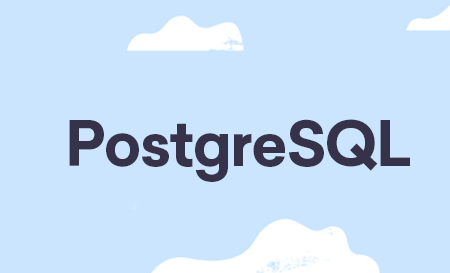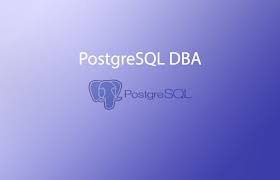Description
Introduction of YugabyteDB Query Language
YugabyteDB Query Language (YCQL) is a SQL-compatible query language used in YugabyteDB to interact with distributed databases. YCQL provides developers with the flexibility of a relational database with the scalability and high availability of distributed systems. It is designed to handle both traditional SQL queries and new, distributed workloads, making it an essential tool for developers and database administrators working with YugabyteDB.
This deep dive will explore the features, syntax, advanced capabilities, and best practices of YCQL, providing a comprehensive understanding of how to use it effectively in distributed SQL applications.
Prerequisites
- Basic understanding of SQL and NoSQL concepts.
- Familiarity with relational database management systems (RDBMS).
- Knowledge of distributed databases and their challenges.
- Prior experience with YugabyteDB or similar distributed databases is beneficial.
Table of Contents
- Introduction to YCQL
1.1 What is YCQL?
1.2 The Role of YCQL in YugabyteDB
1.3 YCQL vs. Traditional SQL
1.4 Overview of YCQL’s Architecture and Features - YCQL Syntax and Data Types
2.1 Basic Syntax of YCQL Queries
2.2 Supported Data Types in YCQL
2.3 Defining Tables in YCQL(Ref: Scaling Distributed SQL with YugabyteDB)
2.4 Understanding YCQL Indexes
2.5 Working with Primary Keys and Clustering Keys
2.6 Foreign Keys and Constraints in YCQL - Advanced YCQL Query Features
3.1 Joins in YCQL: Inner, Left, and Right Joins
3.2 Subqueries and Nested Queries
3.3 Handling Aggregation Functions in YCQL
3.4 Window Functions and Analytics in YCQL
3.5 Using CQL Triggers for Custom Behavior
3.6 Transactions and Consistency in YCQL - Performance Optimization in YCQL
4.1 Query Optimization Techniques in YCQL
4.2 Understanding Query Execution Plans
4.3 Optimizing Indexing in YCQL
4.4 Using Data Distribution for Performance Gains
4.5 Sharding Strategies in YCQL
4.6 Balancing Consistency and Latency in Distributed Queries - Working with YCQL in Distributed Environments
5.1 How YCQL Works in a Distributed Architecture
5.2 Managing Data Across Nodes and Regions
5.3 Querying Across Multiple Nodes in YCQL
5.4 Cross-Region Query Handling in YCQL
5.5 Replication and Fault Tolerance in YCQL Queries - Handling Transactions in YCQL
6.1 ACID Transactions in YugabyteDB
6.2 Using YCQL for Multi-Row Transactions
6.3 Isolation Levels in YCQL Transactions
6.4 Handling Distributed Transactions and Failures
6.5 Best Practices for Transaction Management in YCQL - Integrating YCQL with Other Tools
7.1 YCQL and Apache Kafka Integration
7.2 Integrating YCQL with Data Pipelines and ETL Tools
7.3 Using YCQL with BI Tools for Reporting and Analysis
7.4 YCQL Integration with Microservices and APIs - Best Practices for Writing YCQL Queries
8.1 Structuring Efficient Queries for Large Datasets
8.2 Optimizing Read and Write Operations in YCQL
8.3 Best Practices for Data Modeling and Indexing
8.4 Query Pattern Design for Scalability
8.5 Troubleshooting and Debugging YCQL Queries - Security and Access Control in YCQL
9.1 Authenticating Users in YCQL
9.2 Role-Based Access Control (RBAC) in YCQL
9.3 Encryption and Data Protection in YCQL
9.4 Auditing and Monitoring YCQL Queries for Security - Case Studies: Real-World Applications of YCQL
10.1 YCQL in Financial Services for Real-Time Analytics
10.2 Using YCQL in E-Commerce for Personalization and Recommendations
10.3 Case Study: YCQL for IoT Data Management and Processing
10.4 YCQL in Healthcare: Managing Large-Scale Patient Data - Conclusion
11.1 The Future of YCQL and Distributed SQL
11.2 Final Thoughts on Optimizing and Scaling with YCQL
11.3 Further Learning Resources for YCQL
Conclusion
YCQL brings the familiarity and power of SQL to YugabyteDB’s distributed architecture, offering robust support for both relational and NoSQL workloads. With its advanced features like ACID transactions, high scalability, and fault tolerance, YCQL is a powerful tool for modern data applications that require speed and consistency. By understanding YCQL’s syntax, optimizing queries, and implementing best practices, developers can unlock the full potential of YugabyteDB to handle massive data workloads efficiently. The deep integration of YCQL with the distributed nature of YugabyteDB ensures that data engineers and developers can scale their applications seamlessly while maintaining strong consistency and high availability.







Reviews
There are no reviews yet.